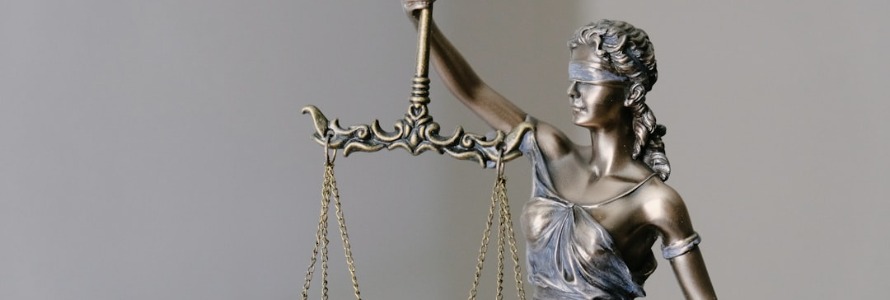
As a self-published author, the freedom to share your voice with the world comes with a unique set of responsibilities. Beyond writing compelling stories or delivering insightful knowledge, self-publishing involves navigating a series of legal and ethical considerations. These factors can have significant long-term effects on your career, your finances, and your reputation. In this article, I will walk you through the legal and ethical challenges I have encountered and provide insights on how to address them, so that you can publish with confidence and clarity.
1. Copyright and Intellectual Property
One of the first legal concepts you must understand as a self-published author is copyright. Copyright law protects your work, ensuring that others cannot reproduce, distribute, or display it without your permission. As soon as you write an original piece of work, you automatically hold the copyright for it, but registering it with the U.S. Copyright Office or a similar authority in your country offers additional legal protections and benefits, such as the ability to sue for statutory damages in case of infringement.
What does this mean for me?
When I publish a book, I own the copyright unless I transfer it through a contract. This means I can license my work, sell it, or assign the copyright to a publisher, but I remain the original creator. I’ve learned that ensuring my name is on the cover of my work, in every edition, and in any derivative material (like translations or adaptations), ensures I hold onto my intellectual property rights.
However, copyright infringement is a common issue in self-publishing. Others may attempt to plagiarize or steal your work. Tools like Copyscape and Grammarly’s plagiarism checker can help identify potential infringement, but knowing how to legally defend your rights—whether through cease-and-desist letters or filing a Digital Millennium Copyright Act (DMCA) takedown notice—is essential.

2. Fair Use and Content Licensing
Fair use is a doctrine in copyright law that allows limited use of copyrighted material without permission, such as quoting a passage in a review, using excerpts for commentary, or including a work in an educational context. As a self-published author, understanding fair use is crucial if you plan to use quotes, images, or other copyrighted materials in your work.
What should I be cautious about?
If I quote someone’s book or use a piece of artwork for my book’s cover, I need to get permission from the copyright owner unless the usage falls under fair use. Misusing copyrighted material can lead to legal disputes, which could delay or derail your publishing process.
In addition, if you plan to license your work for translations, audiobook versions, or film adaptations, be sure to include specific terms in your contract that outline how the rights are transferred and under what conditions.
3. Defamation and Privacy
As an author, you have the freedom to express your opinions and share your thoughts, but this comes with potential legal risks, especially when discussing real people, companies, or events. Defamation is the act of damaging someone’s reputation through false statements, either written (libel) or spoken (slander).
How can I avoid defamation issues?
I must be careful when writing about real people or events. If I use real names or identify individuals, I need to ensure that everything I write is factual and verifiable. Even if I change names or alter identifying characteristics, the essence of the story could still be seen as defamatory.
It’s also important to be cautious with the portrayal of private information. I need to respect people’s privacy, especially if they have not given consent to be written about. In some jurisdictions, publishing private facts that are not newsworthy or of public concern could result in a lawsuit.

4. Contractual Agreements and Publishing Platforms
As a self-published author, you will likely use platforms like Amazon Kindle Direct Publishing (KDP), IngramSpark, or Draft2Digital to distribute your work. Each of these platforms will require you to sign a contract, and it’s vital to read and understand the terms and conditions before proceeding.
What do I need to look out for in publishing contracts?
The most important aspect I need to consider is the scope of the contract. Some platforms ask for exclusivity, meaning I can’t distribute my book anywhere else, which could limit my reach. Others allow wide distribution but may take a cut of the sales. Understanding royalty structures, rights retention, and any hidden fees is key to ensuring I’m making the best financial decision for my book.
Additionally, I need to be aware of what happens if I want to remove my book from a platform. Some contracts have a lengthy removal process, so it’s vital to understand these terms before committing.
5. Ethical Marketing and Advertising
Marketing is an essential part of self-publishing, but it comes with its own set of ethical considerations. Many self-published authors, including myself, use social media, paid advertising, and email marketing to promote our books. While these tools are powerful, they must be used ethically.
What should I keep in mind when marketing?
First, I need to be transparent about sponsored content or paid promotions. If I’m promoting my book through ads or sponsored posts, I must clearly disclose that it is an advertisement. Misleading my audience is not only unethical but also a violation of advertising standards in many regions.
Second, I must be cautious with my interactions on social media. While it’s important to engage with readers and fellow authors, I should avoid practices like fake reviews or paying for reviews. These deceptive tactics might provide short-term gains but can harm my reputation and result in the removal of my book from platforms like Amazon.

6. Taxation and Financial Considerations
Self-published authors must also be mindful of tax obligations. When I earn royalties from book sales, those earnings are taxable, and I’m responsible for paying taxes in the country where I reside. Depending on where you live, tax laws can vary, so understanding your financial responsibilities is essential.
What do I need to consider regarding taxes?
I keep track of all income from book sales, deducting business-related expenses, such as editing, cover design, and marketing costs. Many countries also allow self-employed individuals to claim deductions on such costs, reducing taxable income.
In addition to national taxes, I must also consider any international tax agreements that affect royalty payments. For example, U.S. authors often need to fill out tax forms (like the W-8BEN) to avoid double taxation on foreign income.
7. Accessibility and Inclusivity
While the legal and financial aspects of self-publishing are crucial, ethical considerations around accessibility and inclusivity are just as important. As I write my books, I want to ensure they are accessible to as wide an audience as possible.
How can I make my work more inclusive?
Creating inclusive content means considering a variety of perspectives, including diverse voices, identities, and experiences. It also involves ensuring accessibility in how the book is presented. For instance, offering an audiobook version for those with visual impairments, or providing e-books in formats compatible with screen readers, is an essential step in making my work accessible to a broader audience.

8. Plagiarism and Originality
One of the ethical pitfalls in the self-publishing world is the temptation to copy or heavily draw from the work of others. While self-publishing offers a high degree of freedom, it’s crucial to produce original content and avoid plagiarism.
How do I stay original?
I ensure my writing is authentic by researching and citing sources appropriately, respecting other authors’ work, and adding my own voice to any discussions or stories. Plagiarism is not only unethical; it can damage my credibility as an author and result in legal consequences.
Conclusion
Self-publishing offers great opportunities but also comes with significant legal and ethical responsibilities. By understanding copyright law, navigating contracts, marketing honestly, and ensuring inclusivity, I can confidently publish my work without the fear of legal pitfalls or ethical missteps. As I continue to grow as an author, these considerations will remain central to my publishing journey, ensuring I protect both my work and my reputation while delivering valuable content to my readers.

References
American Library Association. (2021). Copyright and fair use. Retrieved from https://www.ala.org/advocacy/copyright
Creative Commons. (2020). Understanding copyright. Retrieved from https://creativecommons.org/about/cclicenses/
Houghton, R. (2019). A guide to self-publishing contracts. The Publishing Coach. Retrieved from https://www.publishingcoach.com/self-publishing-contracts
Kimmel, S. (2022). The self-publishing legal guide. Greenleaf Book Group.


